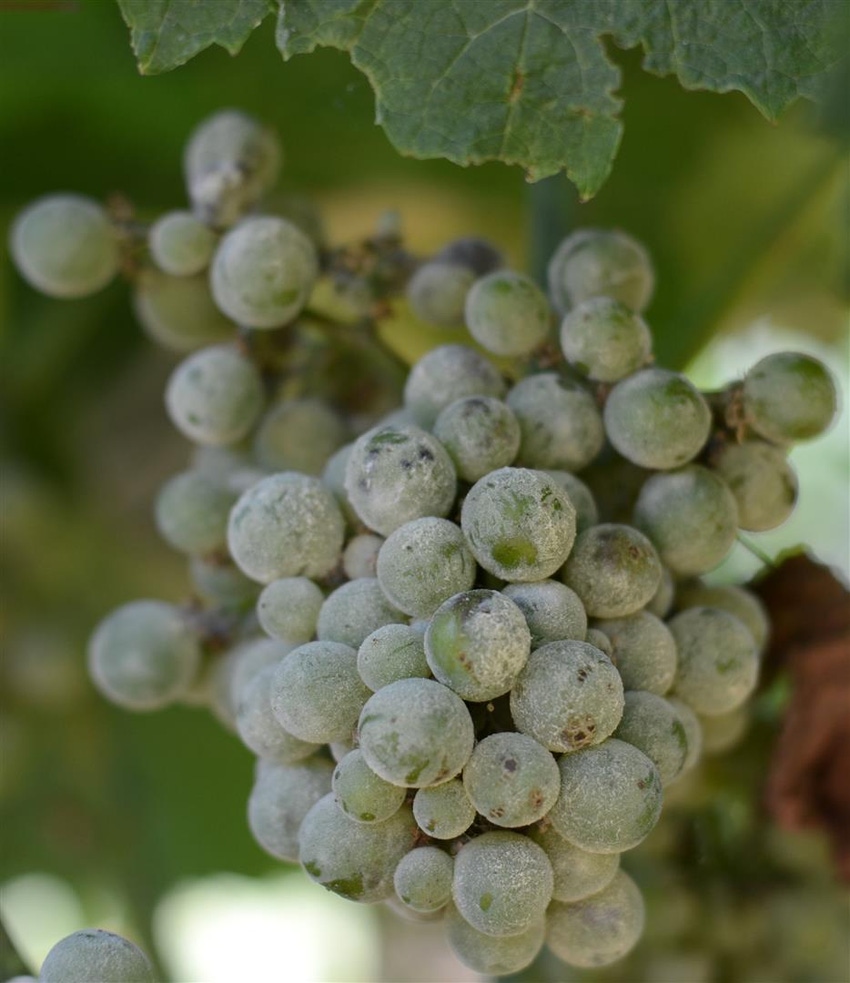February 2, 2015

UC Davis researchers recently uncovered important genetic clues about the pathogen that causes grape powdery mildew, among the most destructive vineyard pest throughout California and the world.
California growers use more chemicals, mostly sulfur and other fungicides, to control powdery mildew than to manage any other vineyard problem. Left untreated, powdery mildew destroys grape quality and yield. Grape powdery mildew is caused by the fungal pathogen Erysiphe necator.
Assistant Professor Dario Cantu with the UC Davis Department of Viticulture and Enology and his colleagues described, for the first time ever, the E. necator genome. It is exceptionally large and dynamic and can evolve quickly to adapt to strong selective pressure such as repeated treatments with fungicides with similar modes of action, leading to fungicide resistance. Their work was recently published in the journal BMC Genomics.
Knowing how the pathogen evolves and causes disease will help grape growers select what fungicides or combination of fungicides to use and when to use them throughout the season. That’s good news for wine grape growers, said Matthew Hoffman, grower program coordinator for the Lodi Winegrape Commission.
“Powdery mildew has major economic impacts for growers in terms of control, yield and quality,” Hoffman said. “Scientific advances like Cantu’s that help reduce the need for control of this disease can benefit both the environment and the economy.”
Understanding E. necator will also help breeders like Professor Andy Walker, UC Davis Department of Viticulture and Enology, develop new grape varieties with effective and durable genetic resistance to powdery mildew.
“Ultimately, we think genetic resistance is the way to go,” Cantu said. “It will be the most cost-effective and environmentally friendly method for controlling powdery mildew.”
Cantu’s research is being done in collaboration with Walker and Doug Gubler, a Cooperative Extension specialist with UC Davis Department of Plant Pathology. Their work with E. necator continues.
“We still need to determine whether genomic plasticity can also help E. necator populations become virulent on resistant varieties that carry single major resistant genes,” Cantu said.
The full manuscript can be accessed at http://www.biomedcentral.com/1471-2164/15/1081
You May Also Like




